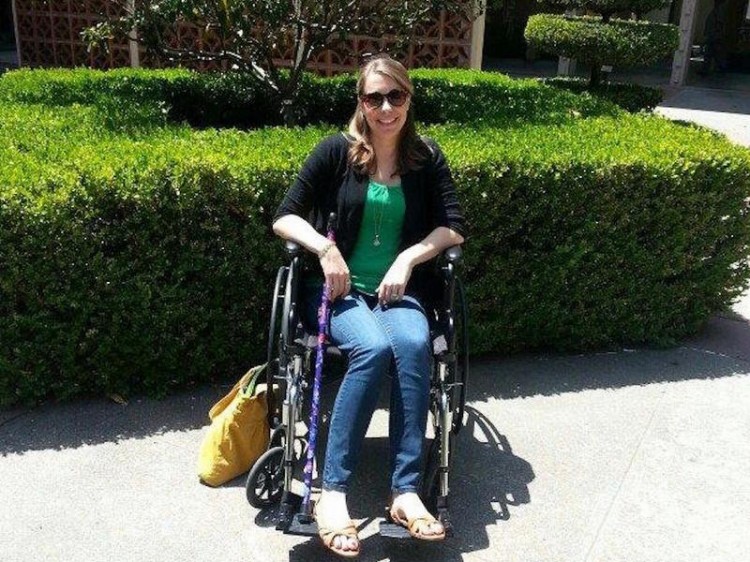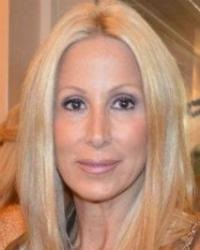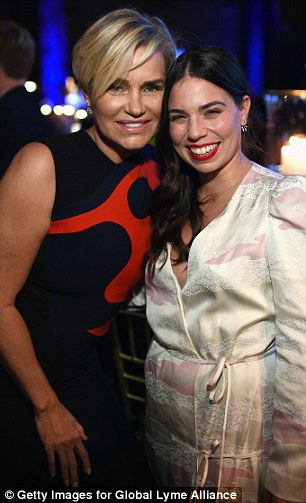Courtesy of: http://themighty.com/2015/08/why-i-lived-a-double-life-while-dealing-with-my-chronic-illnesses/#/ixzz3l5qPuP5t
When I say the words “living a double life,” many people with chronic illnesses may know what I mean. I’m talking about the face you put on every day to “pass” among the healthy and try to live successfully among them, no matter how much your body refuses to comply.
In September 2014, I had to abruptly stop teaching because my chronic conditions — postural orthostatic tachycardia syndrome and myasthenia gravis — had become too disabling to even care for myself. I had a moment of epiphany when I realized living this double life had only led to more challenges. I began to be honest with everyone for the first time in years. I wrote these words to myself to understand why learning to live authentically, and with acceptance, was the only path forward:
Being on extended medical leave has been a strange ride. I spend most days couch-bound and riding waves of anxiety and sadness, trying to stay on a schedule to keep myself occupied by reading, writing, playing music, existing. I’m also seeing things more clearly than I have in a long time. I sit outside in my yard and think about life and look clearly at the chaos that’s happening around me. I’m still figuring this one out. I know others who are ill or disabled who are facing challenges with living authentically. This is a strange ride indeed.
I realized I’ve been living a double life. Not an interesting or even sexy double life as a secret agent or a superhero. I’ve been living a very boring one. I’ve been pretending to be “well,” to be able to stand, drive, be accomplished and have a career, and then come home on the weekends and be bedridden, unable to do the basics like cook for myself or do laundry. My husband picked up the slack on everything else.
I’ve been pretending to be one of them — living among the well who talk about traveling or doing yard work. Pretending not be on an endless cycle of hospital visits. Pretending not to have just dragged myself off the floor of my office or the bathroom and then walked into a classroom to teach.
But as I’ve been getting progressively worse this year, I’ve maxed out my credit card on pretending. My body will no longer let me pretend. I no longer have the willpower to keep up the charade.
This is a good thing because now I can try to live a more authentic life. I’ve been lying to everyone and to myself for a long time — lying about what I’m really able to do and who I really am now. Maybe living authentically is easier for others with chronic illness, but I thought I was making illness look good. For whom?
I’ve never been much of a liar because I’m really bad at it. BS-ing is not really my deal. But I can put on such a stellar performance of being “well” that I start to wonder if theater was my calling.
I wanted people to think I could do it. I needed to believe I could do it. There’s too much at stake if I really can’t do it. I wanted to believe that if I pretended long enough, maybe the performance would become reality. Fake it until you make it, right? It didn’t work out for me. It only made me worse. My fairy godmother never came to give me some killer heels and turn this pumpkin into a new life.
But I can’t do it. The independent, ambitious woman I was a few years ago is now wholly dependent on others to get by. And that’s OK. I still use my polite words, “please” and “thank you.” I’m grateful for the friends and family who have shown their true colors and stood by me, and I’m grateful for my husband, who is my hero.
So I’m going to try this authenticity thing. Reality is harsh. It means not driving. It means not pushing myself so hard every day, which is second nature now. It means accepting that my options have narrowed and I may continue to get worse. I’m going to be honest with strangers, friends, family and myself about what I’m able to do moment to moment. I’m going to keep using the electric cart at stores no matter how many times I get dirty looks from the elderly. I’ll use my wheelchair when I leave the house and not pretend to be able to walk and then predictably fail. I’ll use my shower chair with pride. I’m going to remind people that despite being young and having a rosy glow (that’s the makeup talking), I am not well.
It means I no longer care so much what others think, and that is incredibly liberating. I can deal with the stares when I use my wheelchair. I can now pluck up the courage to say, “Pardon me, but I think I’m going to faint. Do you happen to have a fainting couch so I can make this look fabulous?” My illness is an unpredictable beast, and I’m going to stop fighting it so hard. It means dealing with it in silence less and maybe becoming in tune with the world around me once again. The future is uncertain, but I’m getting more comfortable with that. I’m gaining a lot of life experience in the process, and that is invaluable.
I don’t know what authenticity will look like, but I like the feel of it already. I am sick. I am unable to stand or walk for longer than a few seconds. I can’t breathe sometimes. I need to lie down. I am kind of broken. I’m a fighter. I’m a tough cookie. I am smart and educated. I am a warrior, fighting from a seated position with plenty of fluids and chocolate close by.





